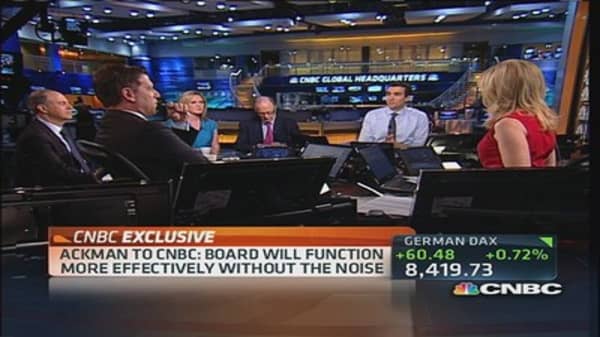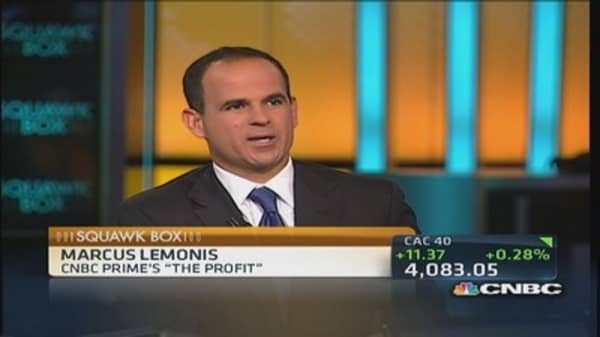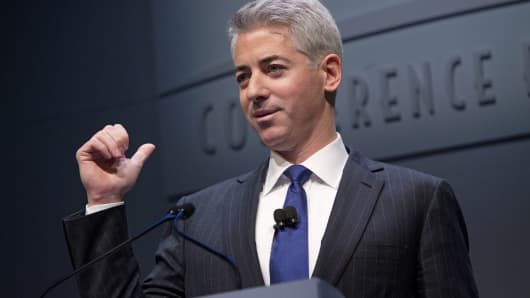After days of turmoil, activist investor Bill Ackman resigned from J.C. Penney's board, saying Tuesday that a deal for his exit is "the most constructive way forward" to save the troubled retailer. He indicated to CNBC he doesn't plan to sell his shares in the company.
As part of the deal, the board "reaffirmed its overwhelming support" for CEO Myron Ullman and Chairman Thomas Engibous, who had been targeted by Ackman.
Ackman told CNBC his resignation was part of a deal in which Ronald Tysoe has been elected to the board. Tysoe spent 16 years as vice chairman of Federated Department Stores, now named Macy's. Another "highly qualified" new director will be added later, the company said.
"I elevated a bunch of issues that are critically important by making them public," Ackman told CNBC in a telephone interview. "We came to an agreement on Ron Tysoe."
"The board will function more effectively without the noise," Ackman said, adding that he is "confident it will focus the board on all the right things."





